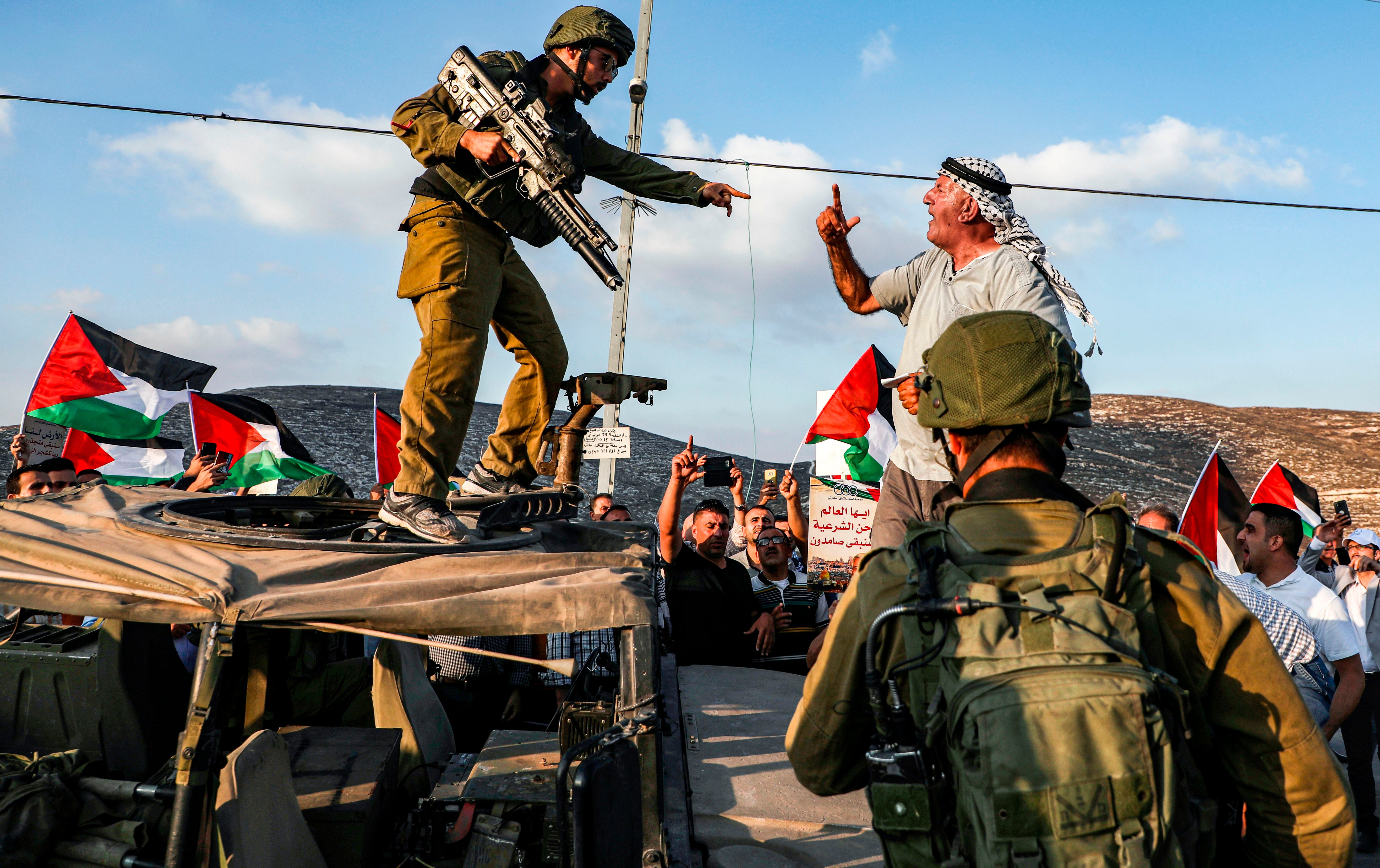The Independent's journalism is supported by our readers. When you purchase through links on our site, we may earn commission.
Violent speech against Palestinians escalated as Israel assaulted Gaza, new report claims
Exclusive: Racism and incitement to violence against Arabs increased 15-fold compared to 2020, 7amleh claims

The amount of violent speech against Arabs and Palestinians on social media rose by 15 times during the recent conflicts in the Middle East compared to last year, a new report shared exclusively with The Independent has found.
It came after the massive assaults by the Israeli government, which displaced 52,000 Palestinians through air strikes between 6 May and 21 May 2021. At least 213 Palestinians were killed in airstrikes, including 61 children, with more than 1,400 people wounded, according to the Gaza Health Ministry. Ten people were killed in Israel, including two children, Israeli authorities said at the time.
Following the assault, a ceasefire was declared between Israel and Hamas, but attacks still continued and Israel thanked the United States for blocking an earlier demand by the United Nations to end the violence.
On the internet and social media, rhetoric had continually escalated over the period. Out of 1,090,000 conversations recorded by The Arab Center for Social Media Advancement (7amleh) - which included posts on Facebook, Instagram, Twitter, YouTube, blogs, forums, and talkbacks - approximately 183,000 of them (16.8 per cent) included racism, slurs, or incitement against Arabs, it said.
“A good Arab is a dead Arab”, one tweet read. Many of the other tweets shared with The Independent have similar sentiments, with some specifying boycotts to Arab businesses, or likening Arab peoples to terrorists. Twitter declined to comment.
The number of posts that referenced “military and security” concerns made up 76 per cent of the inciting speech – many of which came from reactions to incidents in mixed cities in Israel - with one third making violent claims and another third included specific slurs against the Arab population, in comparison to only two per cent of content in 2020.
The vast majority of violent speech (58 per cent) took place on Twitter over the period, as it did in 2020, compared to only eight per cent on Facebook and one per cent on the company’s subsidiary, Instagram - although all social media companies have been the subject to scandals during the bombings. 7amleh did not share how many posts from the social media companies they had examined specifically.
Facebook, Twitter, and Instagram, as documented in a previous report, took a heavy-handed approach to content moderation on their respective platforms that experts categorised as de facto censorship.
Twitter’s automated systems, the company said, “took enforcement action on a number of accounts in error”. It also temporarily restricted the account of Palestinian-American writer Mariam Barghouti, who was reporting on Palestinians being evicted from Sheikh Jarrah, without a clear explanation of why – despite such explanation being necessary, per their own policies
Instagram also removed or blocked posts with hashtags for the Al-Aqsa Mosque, the third-holiest site in the Islamic faith, as its moderation system mistakenly deemed the religious building a terrorist organisation. The company claimed the issue was due to a “technical bug” that “should never have happened in the first place”.
Social media remains crucial to civilians in the region spreading messages about the destruction of their homes and the effects of violence.
“We’re the weak ones. Social media — our cameras and our videos — is one of the only means that we have. They have the weapons and the laws and the infrastructure,” Inès Abdel Razek, advocacy director for the Palestine Institute for Public Diplomacy, has said. “Palestinians just want to explain why this is happening and contextualize.”
The amount of misinformation shared on social media, even from official channels, means such context is vital. Ofir Gendelman, a spokesperson for Benjamin Netanyahu, shared on Twitter a video that appeared to show Palestinian militants in the Gaza strip launching rockets at Israeli’s from civilian areas. The video, in fact, was from 2018, and was recorded in Syria or Libya, the New York Times reported.
In the wake of the recent conflicts, Israel’s parliament voted in favour of a new coalition government, ending prime minister Benjamin Netanyahu’s historic 12-year rule.
The coalition includes right-wing supporters of Jewish settlements in the West Bank to left-wing parties who support a Palestinian State. It also includes, for the first time, an Arab Islamist party, Ra’am.
Join our commenting forum
Join thought-provoking conversations, follow other Independent readers and see their replies
Comments
Bookmark popover
Removed from bookmarks